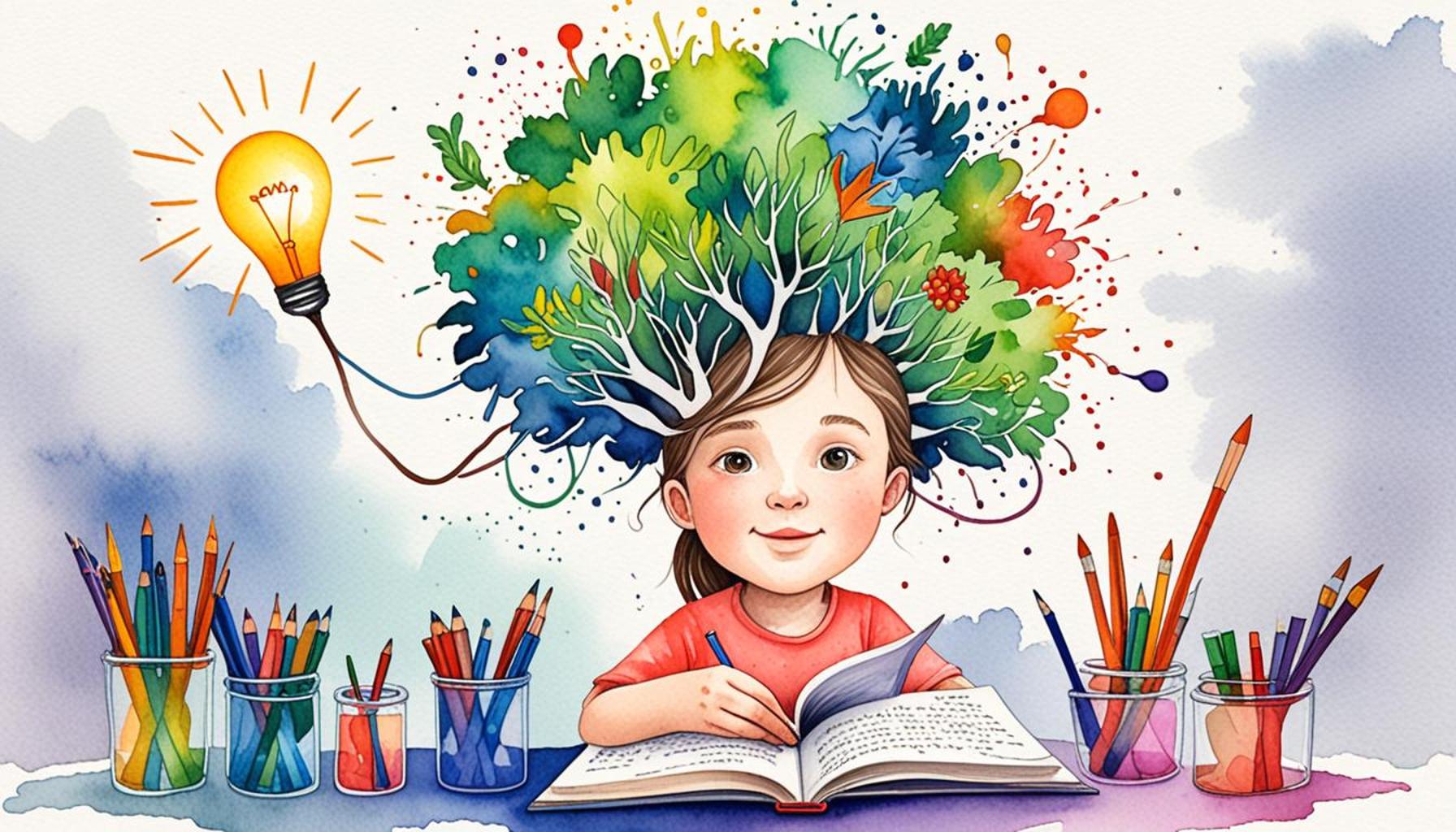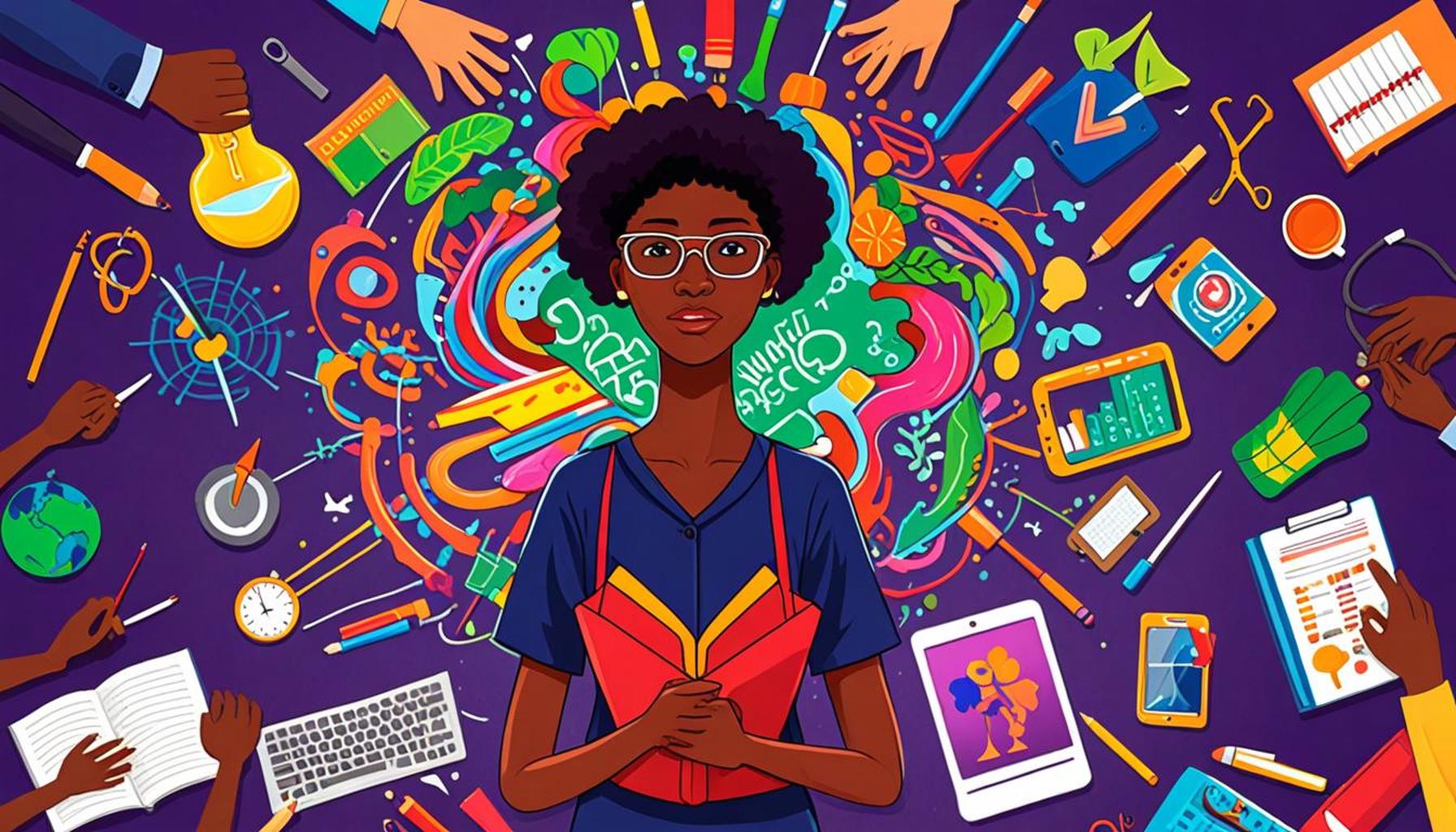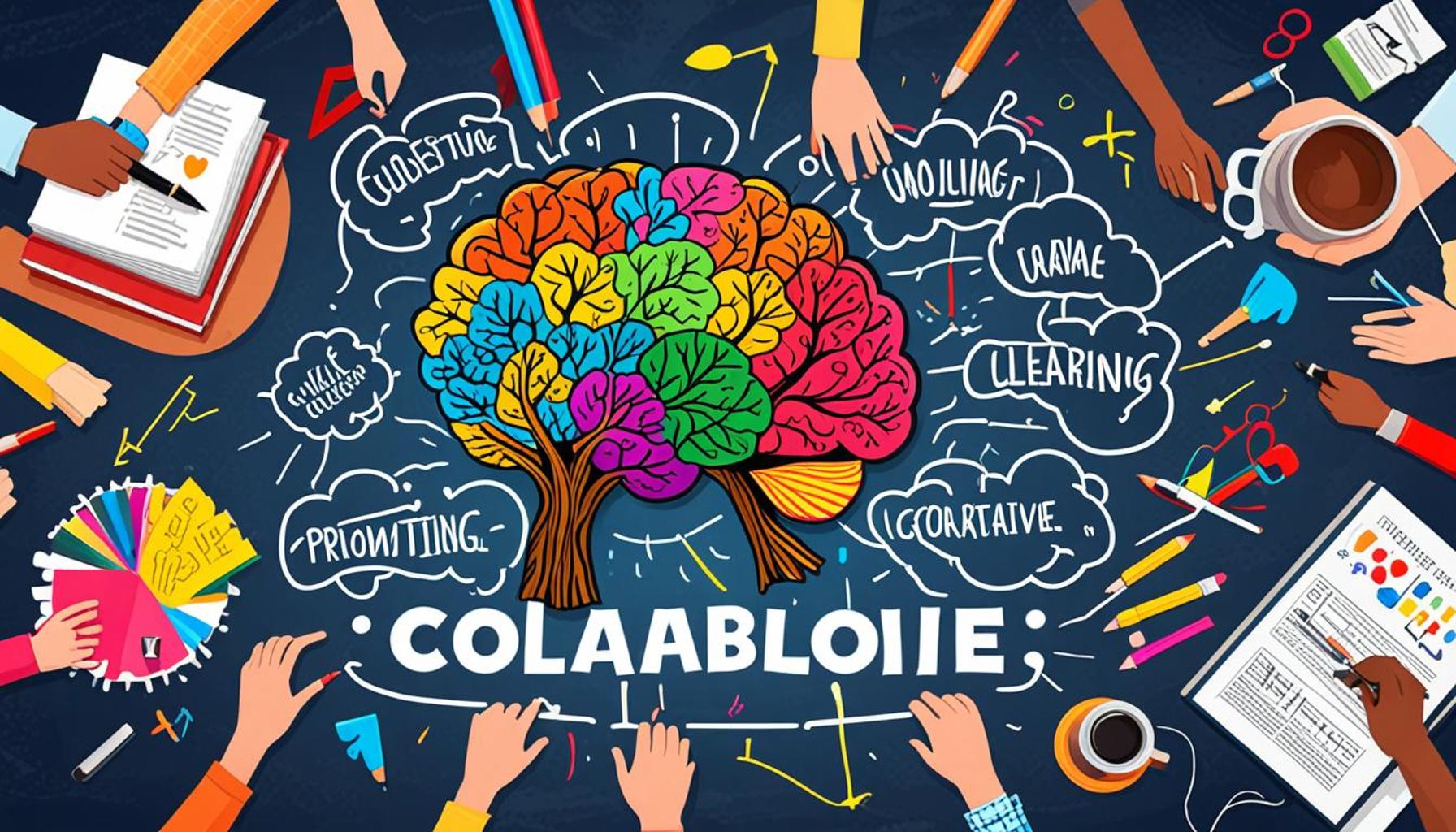Techniques for Self-Assessment and Reflection to Foster Personal and Academic Growth

The Importance of Self-Assessment and Reflection
In today’s fast-paced world, self-assessment and reflection serve as pivotal tools for fostering personal and academic growth. Engaging in these practices allows individuals to cultivate a deeper understanding of themselves, clarifying their strengths and identifying areas for improvement. Such insight can set the stage for transformative change, empowering individuals to navigate their unique journeys more effectively.
One of the key advantages of self-assessment is the development of enhanced self-awareness. This involves understanding your core values and beliefs. For instance, a Nigerian student might realize that their passion for environmental conservation drives them to pursue a career in sustainable development. By recognizing this passion, they can align their educational pursuits—such as selecting relevant courses or internships—with their personal motivations.
Another significant benefit is the ability to engage in goal setting. This practice involves establishing clear, achievable objectives that not only outline personal aspirations but also academic milestones. For example, a student might set a goal to improve their GPA by a specific percentage within a semester. With a clear target, they can devise a focused strategy to achieve it, such as dedicating specific hours each week for study or seeking additional tutoring.
The advantages of these practices extend to improved decision-making. When individuals evaluate their past experiences critically, they become equipped to make informed choices. A professional in Nigeria may reflect on a past job role and realize the importance of effective communication skills, leading them to seek training or workshops that enhance these abilities for future career opportunities.
Techniques for Reflection
Nigerian students and professionals can employ various reflection techniques to address new challenges and navigate obstacles. One widely used method is journaling. By regularly documenting thoughts and experiences, individuals can track their progress and emotions, creating a personal archive of growth. This can be especially beneficial during stressful examination periods or while adjusting to new job roles.

Another valuable technique is peer feedback. Engaging with peers for constructive criticism fosters an environment of collaborative improvement. For example, university study groups can serve as platforms for sharing insights and receiving diverse perspectives, enriching the learning experience.
Furthermore, seeking mentorship from experienced individuals in one’s field can provide invaluable guidance. A mentor can offer insights based on their own experiences, helping mentees navigate complex challenges and make informed decisions. This also builds a network of professional connections that can be beneficial in the long run.
By delving deeply into mechanisms such as self-assessment and reflection, you have the potential to unlock the growth capabilities that dwell within you. With a structured approach, these practices can significantly enrich your learning journey, making it not only more fulfilling but also more aligned with your aspirations and purpose.
ADDITIONAL INSIGHTS: Expand your understanding here
Effective Strategies for Self-Assessment
To fully leverage the benefits of self-assessment and reflection, it is essential to adopt specific strategies that align with personal and academic aspirations. Below are some effective techniques that can significantly enhance self-awareness, goal setting, and overall growth.
- Goal-Oriented Self-Assessment: Begin by setting SMART goals—Specific, Measurable, Achievable, Relevant, and Time-bound. For instance, a student aiming to improve their mathematics skills might set a goal to attend extra tutorials twice a week for the next month. By periodically evaluating progress against these aims, individuals can adjust their strategies as needed, ensuring alignment with their overarching objectives.
- Personal SWOT Analysis: Conducting a SWOT analysis (Strengths, Weaknesses, Opportunities, Threats) can provide a clear picture of where you stand in your personal and academic life. A Nigerian university student, for example, might identify strengths such as their ability to collaborate effectively in group projects, while recognizing weaknesses in time management. This structured approach can illuminate actionable opportunities for development.
- Reflective Practice: Setting aside time for structured reflection can be invaluable. This could involve questioning what worked well during a recent project and what could be improved. A simple question like “What did I learn in the past month that will help me in my studies or career?” can lead to profound insights and the need for additional research, training, or skill development.
Another crucial aspect of self-assessment is tracking progress over time. Consider creating a personal dashboard—a visual tool that allows you to monitor academic performance, skill acquisition, or even personal milestones. Such a structured overview can help identify patterns in success and provide encouragement during challenging times.
Engaging in Reflective Conversations
Another effective method of self-assessment involves engaging in reflective conversations—both with oneself and with others. This can take various forms:
- Self-Talk: Regularly engage in self-dialogue by asking reflective questions. Posing inquiries such as “What are my long-term aspirations?” or “How do I respond to challenges?” helps encourage deeper introspection.
- Peer Discussions: In a Nigerian academic context, forming study circles or discussion groups can facilitate collective reflection. Sharing experiences and lessons learned can not only offer new perspectives but also enhance understanding of diverse viewpoints.
- Professional Feedback: Actively seeking feedback from supervisors or mentors offers constructive insights that can greatly enhance professional development. Doing so invites opportunities for collaboration and growth that may otherwise go unnoticed.
By employing these techniques, individuals can create a structured pathway to identify their core competencies and areas for growth. As self-assessment becomes a habitual practice, it paves the way for continuous improvement, ensuring that both personal and academic journeys remain vibrant and purposeful.
Exploring More Techniques for Effective Self-Assessment
Continuing on the path of personal development and enhancing academic performance, various techniques can be employed for self-assessment and reflection. By integrating a diversity of methods, individuals can achieve a more profound understanding of their learning processes and growth trajectories.
One such technique is the use of journaling. Keeping a reflective journal allows individuals to document their thoughts, feelings, and experiences related to their academic journey. This practice not only fosters critical thinking but also creates a space for acknowledging successes and identifying areas needing improvement. Journaling encourages a deeper level of self-awareness, enabling learners to visualize their growth over time.
Another effective approach is the SWOT analysis—assessing Strengths, Weaknesses, Opportunities, and Threats. This structured reflection can be applied to personal skills or academic projects and helps individuals strategize effectively for their growth. By recognizing strengths, learners can build on them, while acknowledging weaknesses provides focus for future development efforts. Opportunities and threats serve as crucial external factors that can influence one’s learning journey and should not be overlooked.
Peer feedback represents another invaluable technique. Engaging with classmates or colleagues provides varied perspectives and insights that might not surface in solo reflection. Constructive criticism can be an engine for growth, pushing individuals towards new learning horizons. Furthermore, group discussions can stimulate thoughtful discourse, igniting passion and motivation towards academic goals.
Finally, setting SMART goals (Specific, Measurable, Achievable, Relevant, Time-bound) is essential in the self-assessment process. This structured approach clarifies objectives and provides clear milestones for tracking progress. By thoughtfully planning their academic ambitions, learners can align their efforts with tangible outcomes, significantly impacting their personal and academic growth.
| Technique | Benefits |
|---|---|
| Journaling | Enhances self-awareness and tracking of personal growth. |
| SWOT Analysis | Clarifies strengths and weaknesses, facilitating strategic planning. |
| Peer Feedback | Provides different perspectives and fosters collaborative growth. |
| SMART Goals | Promotes goal clarity and measurable outcomes for academic progress. |
By exploring these techniques, individuals can deepen their understanding of self-assessment and ultimately elevate both their personal and academic growth in impactful ways. Discovering what works best for one’s unique learning journey is the key to fostering long-lasting improvement and success.
YOU MAY ALSO LIKE: Read read another article
Leveraging Technology for Enhanced Self-Assessment
In today’s digital age, technology provides a plethora of tools that can facilitate self-assessment and reflection in innovative ways. Embracing these digital solutions can significantly streamline the process of personal and academic growth for individuals in Nigeria and beyond.
- Digital Journaling Applications: Keeping a journal is an age-old method of reflection, but digital journaling apps can enhance this practice. Tools like Evernote or Day One allow users to document thoughts, experiences, and insights daily. By reflecting through these applications, learners can categorize their entries—such as personal growth, academic achievements, or emotional responses—to easily track their evolution over time. This kind of digital organization not only offers a historical record but also helps identify recurring themes and areas in need of improvement.
- Online Assessment Tools: Platforms such as SurveyMonkey or Google Forms can be utilized to create custom self-assessment questionnaires. This technique allows individuals to develop tailored assessments that pinpoint their skills, weaknesses, and areas that require further exploration. For example, a university student might create a survey to assess their proficiency in different subjects, setting a basis for focused improvement efforts in weak areas.
- Learning Management Systems (LMS): For students enrolled in online courses or programs, LMS platforms like Moodle or Google Classroom often include built-in tools for self-assessment and reflection. By continually submitting work and receiving feedback, students can track their improvement, adapt study strategies, and deepen their understanding of subjects in real-time. Furthermore, many LMS systems allow for peer assessments that can provide additional insights and constructive criticism from fellow learners.
The integration of technology into self-assessment practices not only fosters individual growth but also creates opportunities for collaborative reflection among peers. Engaging with a digital community adds another layer to this process, enabling learners to draw insights from the experiences and challenges of others.
Creating Accountability through Self-Assessment Groups
Establishing accountability is crucial for sustaining the self-assessment journey. One effective method to foster accountability is forming self-assessment groups where individuals can collectively set goals and evaluate each other’s progress. This approach is particularly beneficial in the Nigerian academic context, where collaboration is highly valued. The following strategies can help enhance this practice:
- Regular Meetings: Schedule consistent sessions for self-assessment discussions. These meetings serve as checkpoints where members can share their progress, challenges, and next steps, providing mutual encouragement and motivation.
- Peer Review Sessions: Implementing structured peer reviews can assist individuals in honing their skills. Sharing work with trusted peers who provide honest feedback fosters a culture of quality and continuous improvement.
- Accountability Partners: Assigning accountability partners brings an extra dimension of support. These one-on-one relationships can enhance commitment to self-assessment goals, as partners encourage one another and hold each other accountable for achieving set objectives.
By adopting these strategies and utilizing technology effectively, individuals can cultivate a robust self-assessment routine that not only identifies strengths and weaknesses but also paves the way for sustained personal and academic growth. The interplay of technology and human interaction creates an enriching environment conducive to lifelong learning and development.
LEARN MORE: This related article may interest you
Conclusion
In conclusion, the journey of self-assessment and reflection is paramount for fostering both personal and academic growth. By integrating traditional methods with modern technology, individuals can create a comprehensive and engaging self-discovery process that aligns with their unique learning needs. The use of digital journaling applications enhances the ability to track personal progress, while online assessment tools empower individuals to measure their capabilities with precision. Furthermore, the functionality of Learning Management Systems adds a dynamic layer to progress monitoring through continuous feedback and peer interactions.
Moreover, establishing accountability through self-assessment groups enriches the experience by fostering a collaborative environment where members support each other’s growth aspirations. This approach not only strengthens individual accountability but also reinforces community bonds, particularly in the Nigerian educational context where collective success is celebrated.
As individuals embark on their paths of self-reflection, it is essential to remain open to adapting various techniques that resonate with personal and academic objectives. By engaging in these practices, learners ultimately cultivate a resilient mindset that prepares them for both anticipated and unforeseen challenges. In a world where self-awareness and continuous improvement are increasingly valued, employing diverse self-assessment techniques is not just a strategy for success, but rather a cornerstone for lifelong growth.



